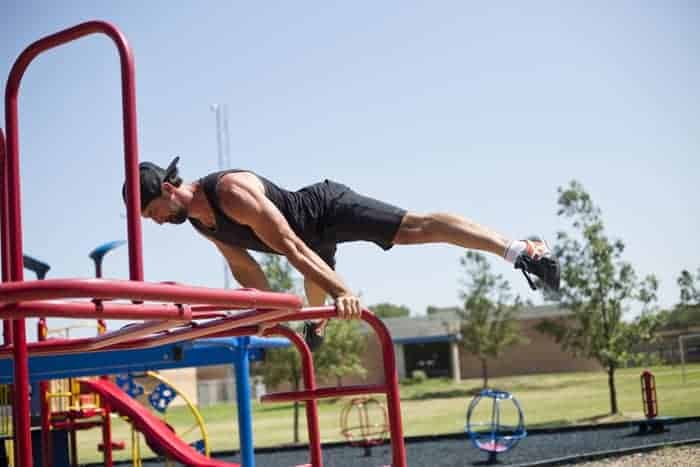I was waiting for a friend of mine when my phone rang. Wind whipped in the background as she explained she was in the headlands still. Knowing the headlands were 10 miles past her original run I sensibly thought she must have driven there. She went on to explain that in fact she had added a bit to her run. A bit! I’m fairly confident that most of us going a bit further on a run would add five or ten minutes, not run over the Golden Gate Bridge, adding twenty miles. However, for this friend, who probably ran out of the womb, it was no big hardship. She was blessed with the genetics of a marathon father that passed down his aerobic workhorse capacity, efficient body mechanics, and a work ethic to propel her long distances with little effort.
What for her was a relaxed Saturday morning jaunt would be deemed a challenge for many and take months to train. Most consider a twenty mile run a challenge, but is it for my friend? There are hoards of “challenging” events today that people are enlisting in with lemming fervor. We leave out the very important detail that whether or not an event is challenging is totally dependent on the participant. The definition of challenge is “something new and difficult which requires great effort and determination.” Whether it’s new, difficult, or a great effort is all dependent on the person doing the event.
In essence it’s all relative. In this Instagram happy world we live in there are a LOT of people who love to show off their amazing ability with “challenging” physical feats by showing their running stats, or photos depicting gravity defying moves. We must remember these physical challenges are relative and they must be put through an equalizing lens. We can say a planche is a planche, but that’s not true. Depending on the physics of the person, say a six foot five individual with long limbs has longer levers to move around. That planche is more difficult than it is for a five foot three person with a much shorter length and less weight to move around.
Can you know this man’s measurements?

These morphological advantages are the reason that Olympian’s bodies have continually skewed to one specialized body type for the specific task, such as Michael Phelps’ preternatural foot and arm length. Gymnasts have an easier time with all their tumbling tricks when they are more compact, hence the reason the woman at the top of the gymnastics world is a four foot eight Simone Biles. Specialized bodies are tailor made for these amazing feats. A back flip is deemed a difficult task, but was it ever difficult for a person like Biles? And is it why she likely continued pursuit with the sport?
A person’s background or biology can also make a feat easier. If someone has been swinging on rock cliffs since they were four, that “difficult” activity is ingrained in that person. They also may have little to no activity in their amygdala, that place in your brain where fear is supposed to keep you off of cliffs. Their brain physiology is making them more adapted to do the activity, making this person more suited to the task. For these individuals, scaling rock surfaces thousands of feet off the ground ends up being less of a challenge, and likely a reason why they can keep climbing higher and higher.
What is a challenge to one person is not the same challenge to another. Yet we live in a competitive and comparative world getting more so by the minute with edited and compartmentalized streams of social media. It is a display of “superior” abilities which in the end might only amount to a genetic role of the dice that has made them best suited for a specific challenging task. Because they appear exceptional, they get applauded. But what are we not seeing? What part of the story isn’t being told?
With the waves of people competing in all sorts of “challenges” it’s important to not get swept up in the tsunami and take a moment to consider your motivations in participating in your next physical endeavor. It’s a good idea to ask yourself a few key questions before you take on a challenge that might help you gain some insight and identify your motivation. What are you trying to accomplish and why? Is this event going to be easy for you or is it excessively difficult, bordering on harmful? Are you doing this event to strengthen your body or your mind? If it’s an easy task are your simply feeding your ego? Are you just bored, or did your buddy rope you into a needed training mate?
At a recent workshop, Chip Conrad stated that “all change, growth, or strength comes from challenge, BUT not ALL challenge creates change, growth, or strength.” The moments when we are not being a sloth lost in a Netflix binge, I think we all aspire to grow and get stronger. We just have to pick wisely about what endeavors we choose to accomplish and not get lost in the world of comparing our accomplishments with the next guy. Our journey is for us and is ours alone. The more you try to keep up the more you miss along the way.
